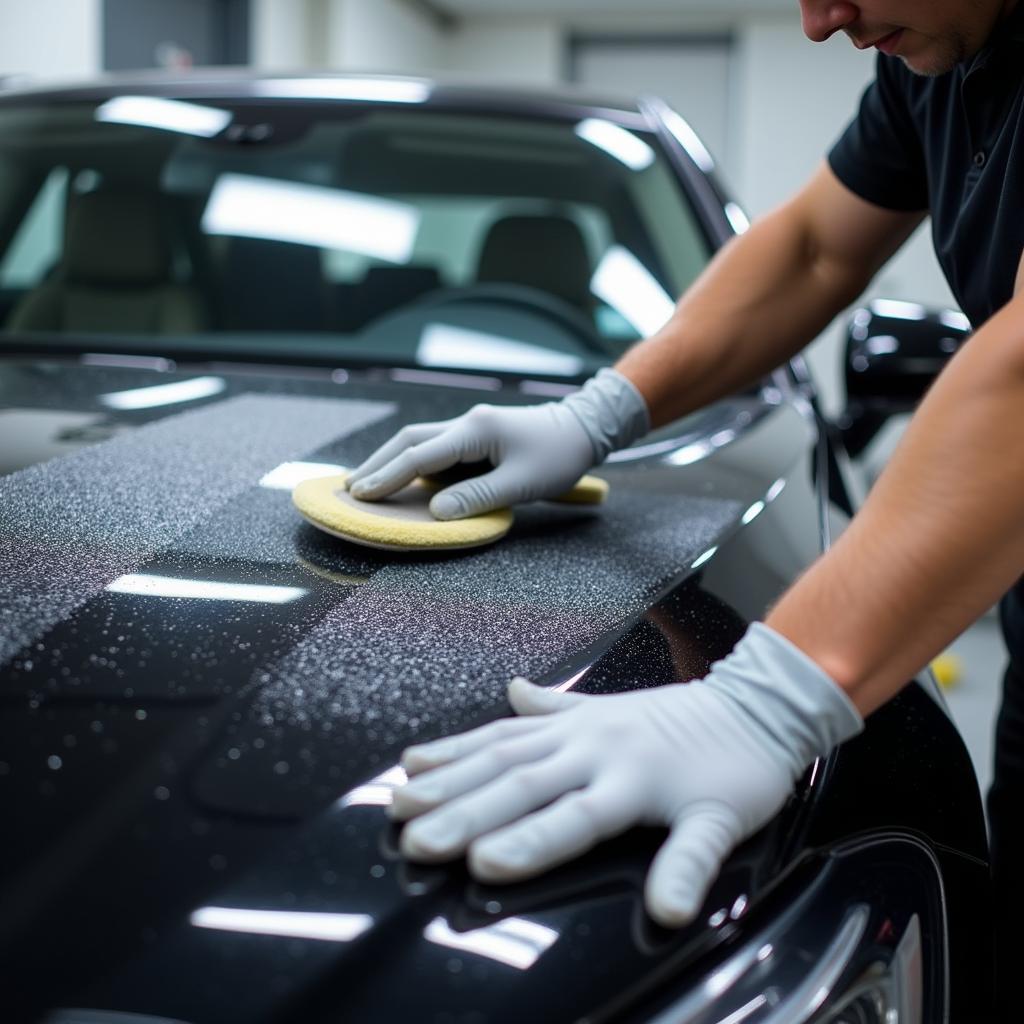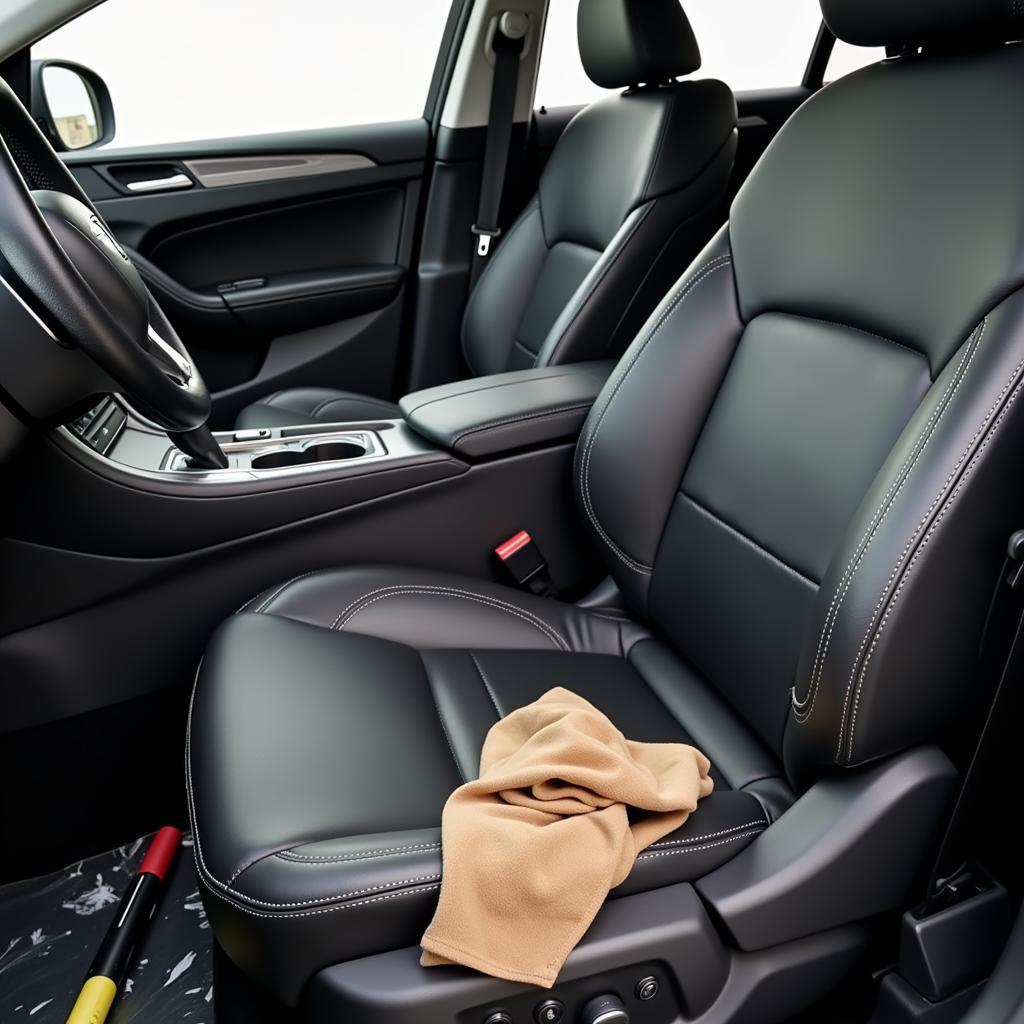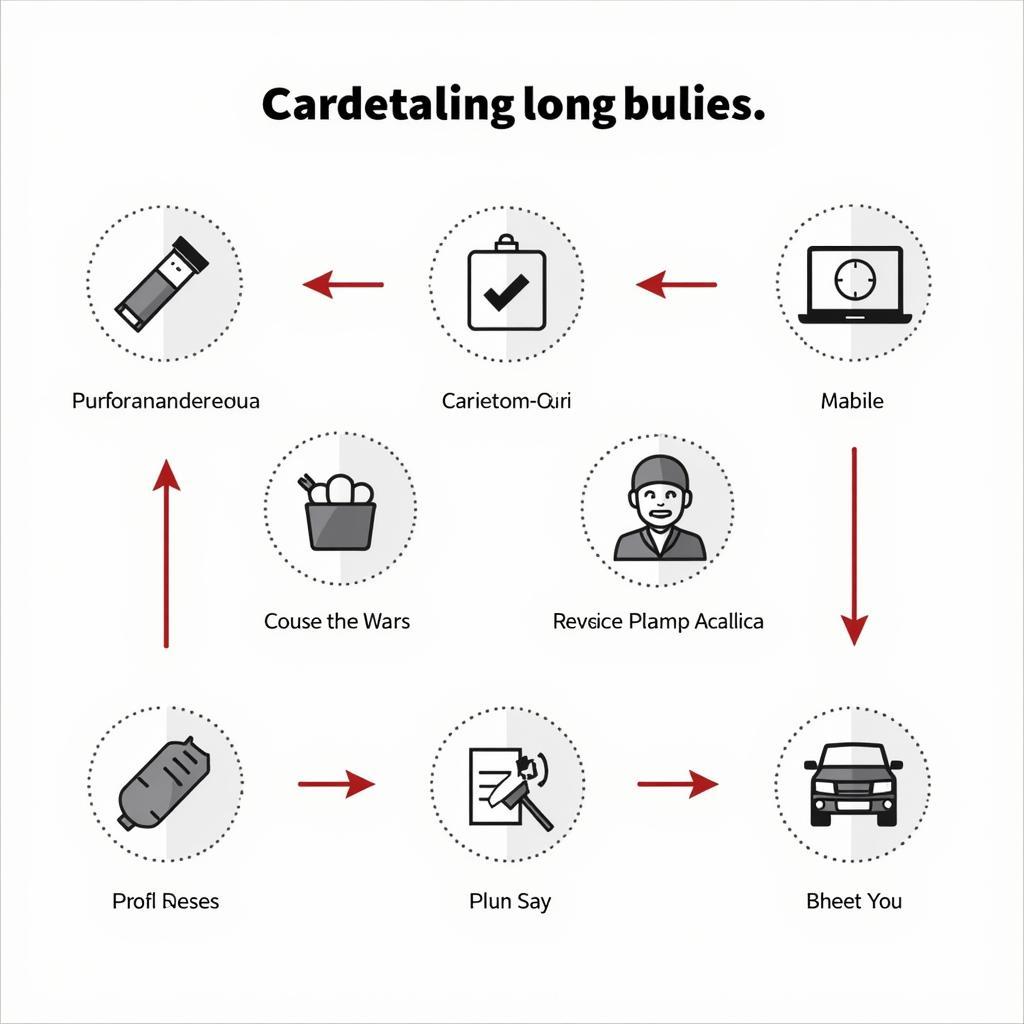Should a new car be detailed? It’s a question many new car owners ponder. While that new car smell and showroom shine are intoxicating, there’s more to consider than meets the eye. That factory finish may look pristine, but it often hides imperfections that can impact your car’s long-term appearance. In this article, we’ll delve into the reasons why detailing a new car might be a worthwhile investment.
Unveiling the Truth: Why Detailing a New Car Matters
A brand new car, fresh off the dealership lot, seems perfect, doesn’t it? But the journey from the factory to your driveway can be surprisingly harsh. should a new car be detailed can dramatically improve its appearance and protection. Your seemingly flawless vehicle might have picked up swirl marks from improper washing at the dealership, rail dust from transport, or even minor scratches from transit. Detailing addresses these hidden imperfections, ensuring your car looks its absolute best.
Protecting Your Investment from Day One
Detailing isn’t just about aesthetics. It’s about protecting your investment. Applying a high-quality paint sealant or ceramic coating to a new car creates a barrier against environmental contaminants like UV rays, acid rain, and bird droppings. This protection helps maintain the car’s paintwork, preventing premature fading and oxidation. Should a new car be detailed immediately? Many experts would say yes, to maximize the lifespan of the factory paint.
 New Car Detailing Protection
New Car Detailing Protection
Think of it like this: you wouldn’t buy a new phone without a screen protector, would you? Detailing offers similar protection for your car’s paint, preserving its value and ensuring it looks its best for years to come.
Debunking the Myths: Common Misconceptions about New Car Detailing
Some believe that new cars don’t require detailing, assuming the factory finish is sufficient. However, this isn’t the case. While the paint might appear flawless, it’s often subject to various contaminants during transit and pre-delivery preparation.
Is it Necessary? Absolutely.
when should s car interior get detailed is a question closely related to the exterior. Even a new car’s interior can benefit from detailing. Protecting the leather or fabric seats with a sealant helps prevent staining and wear. Detailing can also remove any lingering odors from the manufacturing process, leaving your car smelling fresh and clean.
 Interior Detailing for a New Car
Interior Detailing for a New Car
“Detailing a new car isn’t an expense; it’s an investment,” says renowned auto detailing expert, Johnathan Davies, CEO of Pristine Auto Detailing. “It’s about preserving the vehicle’s condition and maximizing its resale value.”
From Factory Floor to Showroom Ready: The Journey of Your Car
From the factory to the dealership, your car undergoes numerous handling and transportation stages. These processes can introduce imperfections to the paint and interior. Detailing removes these blemishes, ensuring your car truly lives up to its “new” status.
The Detailing Process: A Comprehensive Overview
A typical new car detail involves several steps, each designed to enhance and protect the vehicle:
- Pre-wash: Removing loose dirt and debris.
- Wash: Thoroughly cleaning the exterior.
- Decontamination: Removing embedded contaminants like iron particles and rail dust.
- Polish (if necessary): Correcting minor paint imperfections.
- Protection: Applying a sealant or ceramic coating.
- Interior Detailing: Cleaning and protecting the interior surfaces.
 Car Detailing Process Stages
Car Detailing Process Stages
“Think of detailing as a spa day for your car,” adds Sarah Miller, Lead Detailer at AutoShine Detailing. “It’s about revitalizing and protecting every surface, inside and out.”
Should a New Car Be Detailed? The Verdict
how to detail a black car by hand requires extra care and attention. Similar principles apply to any new car, regardless of color. While the initial cost might seem like an added expense, the long-term benefits of detailing a new car far outweigh the price. It protects your investment, maintains the car’s value, and ensures it looks its absolute best for years to come. So, should a new car be detailed? The answer is a resounding yes.
FAQ
- How much does new car detailing cost? Prices vary depending on the services included and the detailer’s location.
- When should I detail my new car? Ideally, as soon as possible after purchase.
- What is the difference between waxing and ceramic coating? Ceramic coatings offer longer-lasting protection than wax.
- Do I need to polish a new car? It depends on the condition of the paint. A professional detailer can assess this.
- How often should I detail my car after the initial detail? Every 6-12 months is recommended.
- Can I detail my new car myself? While possible, professional detailing offers superior results.
- What are the benefits of interior detailing for a new car? It protects against stains, spills and wear and tear, preserving the interior’s condition.
Common Scenarios and Questions
Scenario 1: Just purchased a new white car and noticed small brown spots. This could be rail dust, a common issue addressed through detailing.
Scenario 2: The interior fabric feels rough. Detailing can include a deep cleaning and conditioning of the fabric, restoring its softness.
Scenario 3: Concerned about swirl marks from improper washing. A professional detailer can safely remove these marks.
Further Reading
how to detail cloth car seats provides additional information on interior detailing. Also, check out where can i get car detailed in waco tx for location-specific services.
Need assistance? Contact us via WhatsApp: +1(641)206-8880 or email [email protected]. Our customer service team is available 24/7.

Leave a Reply